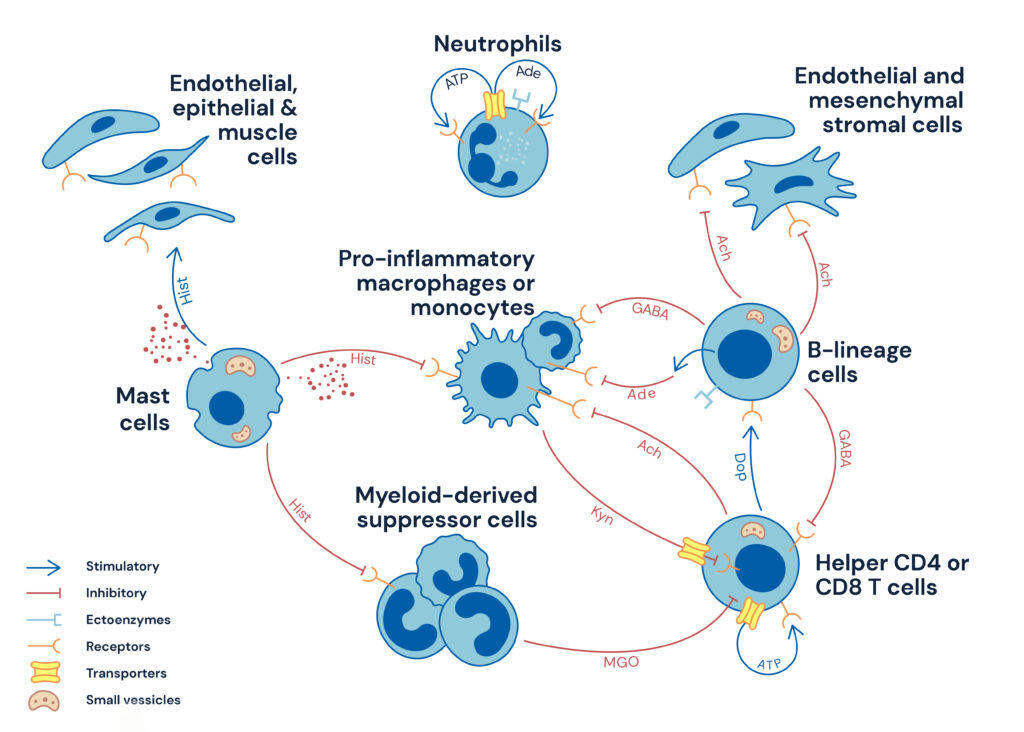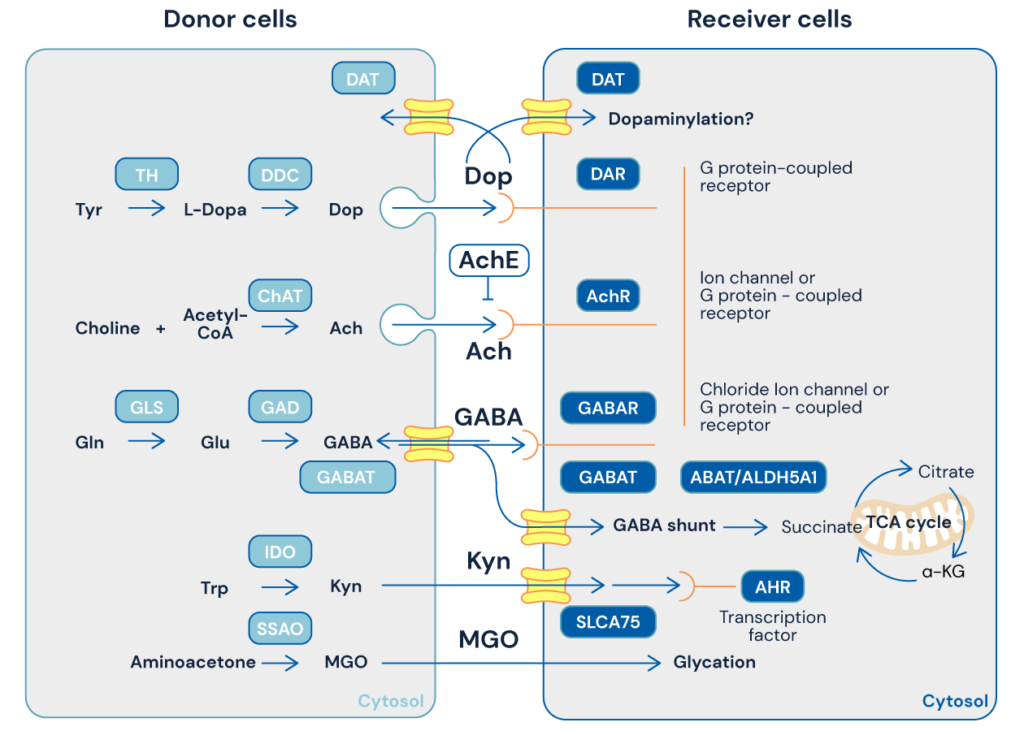In a new review published in Trends in Immunology, Prof. Sidonia Fagarasan and her colleagues argue that the process of immune activation may be somewhat more complex. There is increasing evidence that metabolites secreted from activated immune cells into the local environment can have a profound impact on the immune response. Recent research by Fagarasan’s lab and others has demonstrated that many of these metabolites are important factors in the cellular processes that fine-tune the immune response under both healthy and pathological conditions.
Many of these secreted immune metabolites—such as γ-aminobutyric acid, acetylcholine, or GABA—have been extensively studied in other biological contexts, while we are only starting to understand their role in the immune response. Metabolites are usually sources of energy for cells or simply biochemical building blocks for cellular structures.
Figure 1: Immune cell–cell interactions via secreted immune metabolites (SIMets) in mice and/or humans

Figure 2: The influx and efflux of secreted immune metabolites (SIMets) determine their bioactivities

Recent research suggests that, in addition to signaling through cell surface proteins and peptides, metabolic and energetic processes play a fundamental in the day-to-day workings of the immune system. That the immune response to pathogens or cancerous cells is fundamentally also a metabolic and energetic process should not come as a surprise. More importantly, this insight may also have significant implications for cancer immunotherapy.
But, as the authors of this review paper argue, the role of secreted immune metabolites remains poorly understood; a fair amount of further research is needed to better characterize their role and function in the immune response. One thing is clear, however: In addition to genetic analysis and cell sorting, metabolomics is rapidly emerging as a powerful new research tool for the study of fundamental processes within the human immune system.
References:
Baihao Zhang, Alexis Vogelzang, Sidonia Fagarasan. Secreted immune metabolites that mediate immune cell communication and function, Trends Immunol. 2022 Dec43(12):990-1005. DOI: https://doi.org/10.1016/j.it.2022.10.00610.1016/j.it.2022.10.006. Epub 2022 Nov 5.
